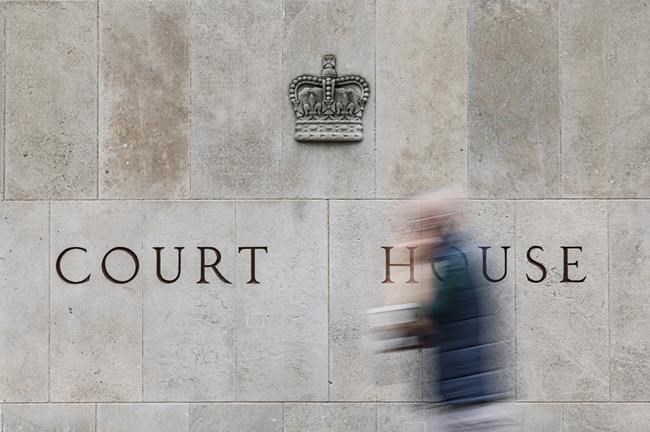OTTAWA — A new study says Canada's justice system features "significant and pervasive" barriers for transgender people who encounter legal issues.
The Canadian Bar Association and the HIV & AIDS Legal Clinic Ontario found that transgender people are more likely to have coexisting legal issues and are less likely to interact with the justice system.
The study found that about seven out of 10 transgender people report having at least one issue that could be addressed by the system — such as issues with discrimination, medical treatment, employment, housing or debt — compared with a little less than half of the general adult population in Canada.
"As a corollary of that, often, the participants on our study were dealing with multiple legal problems at the same time," said Julie James, an assistant professor at Toronto Metropolitan University.
The study is based on interviews with 182 transgender people who were surveyed over the course of three years.
People who took part said they are reluctant to seek legal help over fears of discrimination, inadequate services or a lack of accessible transgender-specific legal information.
"They reported often being told directly that they were being denied housing, shelter space, consumer services, police protection, health care, drug treatment and or employment because they are trans," the report says.
More than 90 per cent of of the survey participants said they found the legal system served non-transgender people better than transgender people.
"It was really highlighted that coming to the legal system was absolutely their last resort," James said.
"If they have come to the legal system, it was basically a matter of life and death for them and they were finding no other way to actually survive through what they were dealing with."
The study found that people are often hesitant to interact with the justice system because of previous negative experiences or fears that they may be misgendered or disrespected in a public space.
James said the research also found that interacting with the justice system often had an emotional toll on the mental health and finances of transgender people.
"The impact of legal problems was pretty profound," she said.
The report concludes that tinkering with policies and regulations is not enough and "systematic change" is needed, including on preventing harms in the first place.
It also calls for more education on transgender identities and more support for transgender legal professionals. It says law societies in Canada should mandate that practitioners receive at least three hours of training focused on equity and diversity.
Justice Minister David Lametti's office said he is looking forward to reviewing the report and its recommendations.
"Minister Lametti continues to look at how the federal government can be of best support to those providing on the ground services to improve access to justice for 2SLGBTQI+ people," spokesperson Diana Ebadi said in a statement.
Canadian Bar Association president Steeves Bujold said lawyers in Canada need to understand the needs of the transgender community to build back trust.
"Without trust, the justice system can't work," he said.
"It's based solely on trust."
An advisory group at the bar association that includes members of the transgender community is now reviewing the study's findings, said Bujold.
"It will bring expertise. It will also bring legitimacy to the recommendations and the concrete actions we will be taking," he said, adding he hopes the group will make its recommendations before his term as president ends in August.
The findings of the study weren't a surprise for Gemma Hickey, an LGBTQ activist who advocated for and received one of Canada's first non-binary passports — which allow Canadians to identify as neither male nor female on their travel documents.
Hickey said they have had to fight for their rights.
"I really feel that this analysis brings that to light for other people, perhaps, who don't fully understand what it's like to be part of a marginalized community."
This report by The Canadian Press was first published Feb. 3, 2023.
David Fraser, The Canadian Press



